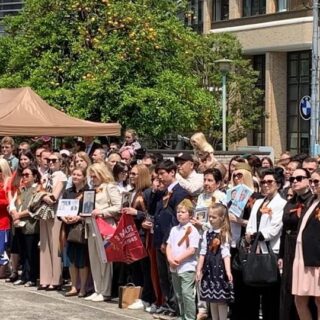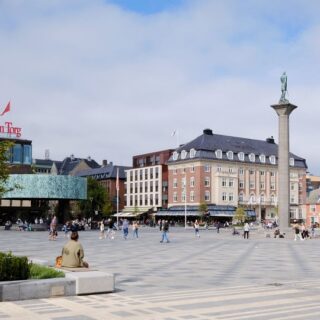
Naoko Watanabe, 90, has been living alone in her tiny Tokyo apartment for 20 years. After the death of her husband, a teddy bear donated by the local authorities became her best friend. The soft toy has become like a native, you can caress it and stroke it. And in case of an emergency, press the built-in button and call an ambulance or social workers. Naoko admits that it’s nice to know that she’s not forgotten.

There are a lot of people like Naoko in Japan, its inhabitants belong to the group of centenarians. The country occupies one of the first places in terms of life expectancy. This is largely facilitated by the care shown by the state. These are the necessary amenities in creating a life for the elderly, and volunteer organizations, and the healthcare system. Recently, Japan set a new record for the number of centenarians – more than 80,000 people over 100 years old live in the country, according to the Ministry of Health, Labor and Welfare. But the inhabitants of the Land of the Rising Sun themselves call it “an aging country.”
All this is true, but let’s add a “fly in the ointment” … The birth rate in Japan in recent years has fallen to its lowest level in all 120 years of observations. The demographic problems of the country, the rapid aging of the Japanese and the declining birth rate have been discussed for many years. Now we are even talking about the fact that if the dangerous trend cannot be reversed, then the Japanese may disappear altogether as a nation.
In addition, there is another serious problem in Japan — the phenomenon of the lonely death of old people or in Japanese Kodokushi (孤独死). Its cause is connected with economic problems and with the aging of the population in growing social exclusion. People do not maintain contact with friends, neighbors and relatives and become isolated in their own little world, where death eventually overtakes them. Many Japanese devote their entire lives to work. They do not start a family and after retirement they are left completely alone.

Most of the cases occur with closed, albeit relatively young, men of about 50 years old who have little contact with society. Also, a lot of deaths of old people occur due to the lack of a familiar way of life – a large family living under one roof. After all, as already mentioned, the elderly very often live alone.
On average, more than 30,000 older people across the country ended their lives this way.
The extinction of the Japanese is, of course, a long process, but the problems for the economy and finance associated with demography are already growing rapidly. First of all, this is a labor shortage and a huge burden on the country’s financial system.
However, they are still trying to find a way out of this difficult situation.
The authorities, for example, decided to change the migration policy and open the doors to foreign workers. And Japanese businessmen are increasingly leaving older people who are retiring to work.

Basically, Japanese old people lead a very active lifestyle. They can be found in swimming pools, tennis courts, and rice fields. Every year, Japanese people over the age of 65 make more than 2 million trips abroad.
My friend’s mother flew to Australia at the age of 99 without even knowing English.
In 2013, 80-year-old Japanese climber Yuichiro Miura reached the summit of the world’s highest mountain, Everest. He successfully climbed the summit at 8846 meters above sea level and thus set a new world record.
 The elderly Japanese do not part with speed. Sometimes on the street you can see some 90-year-old old woman who, wearing a helmet, rushes home from the store on a moped. It is safe to say that despite various negative problems, the old people of the Land of the Rising Sun are very energetic and cheerful, who, thanks to an active and healthy lifestyle, attentive attitude to health, look much younger than their age.
The elderly Japanese do not part with speed. Sometimes on the street you can see some 90-year-old old woman who, wearing a helmet, rushes home from the store on a moped. It is safe to say that despite various negative problems, the old people of the Land of the Rising Sun are very energetic and cheerful, who, thanks to an active and healthy lifestyle, attentive attitude to health, look much younger than their age.
They are also called representatives of the “Silver Age”.
Today it is generally accepted that the elderly are the wealth of the Land of the Rising Sun. Respect for elders is an old tradition in Eastern countries, especially Japan. It consists not only in the observance of certain rules of behavior, but also in the attitude towards the older generation. In the Sakura Country, there is even a public holiday honoring the elderly – Honoring the Elderly Day or “Keiro no hi” (敬老の日). The Japanese treat him with special trepidation. This holiday is celebrated by everyone without exception and is considered one of the brightest and most beloved in the country. It is celebrated annually on the third Monday of September, this year its celebration fell on September 19th.

Honoring the Elders Day is not only a holiday for the elderly themselves, their relatives and friends, children and grandchildren. But also a holiday for trading companies. Indeed, on this day, all retail chains, department stores and online stores offer a huge selection of goods for the elderly. Basically, they turn to children and grandchildren, urging them to congratulate the older generation. And to lure more buyers, provide significant discounts.
But there are also very good traditions. For example, some medical institutions conduct free medical examinations, and charitable organizations, foundations and various government agencies issue cash benefits, and schools and creative teams also hold concerts. On this day, some large sports centers invite older people to attend sports classes for free.

On this holiday, older people are given gifts and expressed gratitude for their services to the country. It is undeniable that what Japan has achieved since the devastation caused by the Second World War, the country is indebted to all those Japanese who are now over 70 years old.
In Japan, the cult of respect for elders and the connection between generations are very strong and tangible. For the elderly or people of the “silver age”, a lot is being done in all areas to make their life easier and better. For example, in Japan there is a special pedestrian “silver zone” for the elderly, and special car stickers have been developed for centenarian drivers.
And one more interesting fact. It turns out that according to an old tradition, a Japanese who has lived five times a twelve-year cycle (60 years) moves to a new level of his condition – returns to infancy. At this time, it is customary for relatives to give them a small hat and a vest. The color of such a gift depends on the age reached at the time of the holiday. So for 70 and 77 years on the day of “Keiro no hi” they give lilac vests, at 80, 88 and 90 years – yellow, and when the “baby” reaches 99 years – white.
In general, in Japan, people of the “silver age” are treated with special trepidation. A famous Japanese proverb says: “Learn new things by turning to the old.” And everyone understands that someday the “silver age” will come to him/her.





